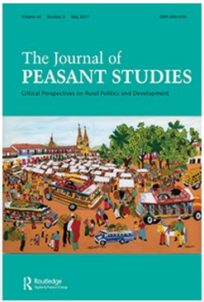
Over the last two decades, the expansion of oil palm and sugarcane plantations in the Polochic Valley (Guatemala) has exacerbated the historical struggle of Maya-Q’eqchi’ peoples for land rights. Based on a mixed-methods approach, I examine the dynamics of the conflict between 1998 and 2014, focusing on the visibility, manifestation and intensity of violence and the role of Non-Governmental Organizations (NGOs) and peasant organizations in opposition to oil palm and sugarcane plantations. I show that the evolution of the conflict can be explained by changes in the strength of organizations’ alliances due to tensions and lack of coordination, as well as the fear of state repression and the funding context of these organizations. These results allow me to discuss how violence, the role of these organizations and the dynamics of related events have influenced the visibility of the conflict associated with the expansion of oil palm and sugarcane plantations in the Polochic.
Keywords
agrarian and environmental conflicts
flex-crops
human rights
NGOs
peasant organizations
Link
http://www.tandfonline.com/eprint/PYiuyStxPxbAXQdVkNdY/full
email hidden; JavaScript is required

The project ENVJUSTICE has received funding from the European Research Council (ERC) under the European Union’s Horizon 2020 research and innovation programme (grant agreement No. 695446)